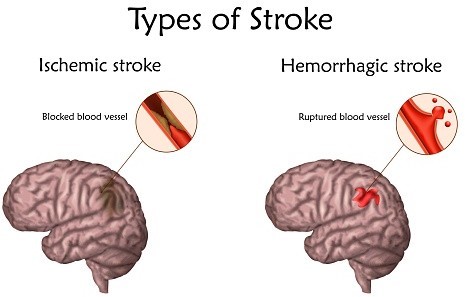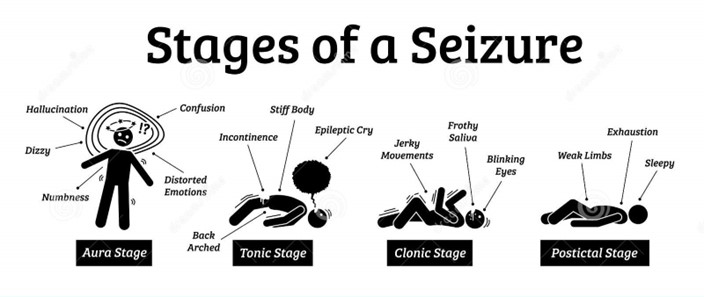A nurse is planning care for several clients and is considering the clients' risk for stroke. Which of the following conditions places the client at risk for an ischemic embolic stroke?
A client who has an arteriovenous malformation
A client who has thrombocytopenia
A client who has chronic atrial fibrillation
A client who has uncontrolled hypertension
The Correct Answer is C
A client who has chronic atrial fibrillation is at risk for an ischemic embolic stroke. An ischemic embolic stroke occurs when a blood clot that forms in one part of the body travels to the brain and blocks blood flow. Atrial fibrillation is a type of irregular heart rhythm that can cause blood to pool, thicken, and clot in the heart or arteries near it. Pieces of these clots can travel to the brain and cause an ischemic embolic stroke.
a. A client who has an arteriovenous malformation is not at risk for an ischemic embolic stroke.
b. A client who has thrombocytopenia is not at risk for an ischemic embolic stroke.
d. A client who has uncontrolled hypertension is at risk for a stroke but not specifically an ischemic embolic
stroke.

Nursing Test Bank
Naxlex Comprehensive Predictor Exams
Related Questions
Correct Answer is B
Explanation
The nurse should use the term "postictal phase" when documenting the client's difficulty arousing and sleepiness for several hours following a generalized tonic-clonic seizure. The postictal phase is the period of time immediately following a seizure during which the client may be difficult to arouse and very sleepy.
Presence of absence seizures, presence of automatisms, and aura phase are not appropriate descriptions for the nurse to use when documenting this finding in the medical record. Absence seizures are a type of seizure characterized by brief episodes of staring and unresponsiveness. Automatisms are repetitive, unconscious movements that can occur during a seizure. The aura phase is a warning sign that can occur before a seizure.

Correct Answer is C
Explanation
The nurse should monitor the client for flank pain as an adverse effect of taking calcium carbonate. Calcium carbonate is a calcium supplement used to prevent or treat a calcium deficiency¹. One of the side effects of calcium carbonate is the formation of kidney stones, which can cause flank pain².
a. Urinary retention is not a common adverse effect of calcium carbonate.
b. Tinnitus is not a common adverse effect of calcium carbonate.
d. Bradycardia is not a common adverse effect of calcium carbonate.
Whether you are a student looking to ace your exams or a practicing nurse seeking to enhance your expertise , our nursing education contents will empower you with the confidence and competence to make a difference in the lives of patients and become a respected leader in the healthcare field.
Visit Naxlex, invest in your future and unlock endless possibilities with our unparalleled nursing education contents today
Report Wrong Answer on the Current Question
Do you disagree with the answer? If yes, what is your expected answer? Explain.
Kindly be descriptive with the issue you are facing.
